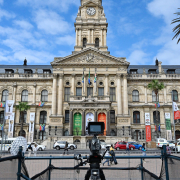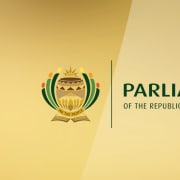|
Getting your Trinity Audio player ready...
|
The make-up of parliamentary portfolio committees; the political orientation and leadership skills of their chairpersons; and their ability to effectively hold members of the executive to account are all factors that will determine if Parliament will from here on perform its oversight mandate as recommended by the Zondo commission in its report.
Civil society body the Parliamentary Monitoring Group (PMG) recently released a report in which it makes its own recommendations for how Parliament can evolve into the robust accountability body that the public requires. Titled Where was Parliament?, the report echoes some of the findings and recommendations of the commission in relation to Parliament’s non-response to the first allegations of state capture that led to an investigation by former public protector Thuli Madonsela, in 2016.
“Observing the work of Parliament as well as strengthening and protecting our legislative body lies at the heart of PMG, so it would be remiss of us if we did not reflect on this watershed moment,” the authors note. “Parliamentary oversight is one of the cornerstones of democracy and vigorous monitoring of the executive is one of Parliament’s primary responsibilities. Oversight holds the executive accountable for its actions and ensures that it implements policies in accordance with the laws and budget passed by Parliament.”
The document zooms in on the work of portfolio committees that perform oversight over different government work streams. It notes the need to solidify the mandate of these committees with clear legislation to ensure accountability on the part of members, and also offers examples for how the committees could endeavour to achieve more of the work they should do. It also does not shy away from the impact of politics on committees, and endorses the recommendation of the commission, of a rotational arrangement for chairpersons, and that opposition MPs also hold the position of chairperson.
As did the Zondo commission report, Where was Parliament? also leans on the 1999 report by Professor Hugh Corder, who was tasked at the time with determining oversight and accountability mechanisms that could be used in Parliament. The Corder report recommended that Parliament enact the Accountability Standards Act and an Accountability and Independence of Constitutional Institutions Act, to which members of Parliament would be accountable. PMG notes that although this proposed legislative change was ignored, the conditions now are ripe for the legislative body to reconsider it to enable an environment where MPs are individually accountable for their actions, and not along party lines.
Well empowered, but acting toothless
“Between the Constitution, Rules of Parliament, and even court judgments affirming the responsibilities of Parliament, the institution is well empowered to carry out its oversight responsibilities. Professor Corder emphasises that multiple provisions in the final Constitution require Parliament to oversee the executive government and to hold it accountable.”
Findings by the commission point to a dereliction of this constitutional mandate, however, requiring chairperson Chief Justice Raymond Zondo to consider whether some reform in the elective process of the country – and the impact this would have on who gets a seat in Parliament – was not necessary.
On this, the PMG report notes: “In South Africa, the executive and Parliament are not neatly separated – members of the executive (ministers and deputy ministers) are also Members of Parliament. The executive literally sits alongside the Members of Parliament meant to hold them accountable. Another contextual layer to add to this is that both groupings (the executive and ANC MPs) represent and owe their seats to the same political party.”
While the discussion of electoral reform is a longer-term one that requires intensive debate, there are a number of practical changes that Parliament can implement now to restore its constitutional standing and ensure that leaders of government are held accountable.
Recommendations
The PMG report proposes nine recommendations:
- Parliament should draft and enact Corder’s recommended Accountability Standards Act and an Accountability and Independence of Constitutional Institutions Act.
- Parliament should review the Oversight and Accountability Model (OVAC) of 2008 and ensure all recommendations are implemented fully.
- Parliament should develop clear rules on action to be taken when the Executive does not respond to committee recommendations in tabled reports (similar to the Executive not replying to written questions on time).
- Parliament should review and strengthen the National Assembly Guide to Procedure as well as existing practices and conventions.
- Parliament should do an assessment of the budget allocated for oversight. If necessary, additional funds should be reallocated and sourced in future budgets.
- Parliament should re-imagine the committee system in the following ways:
- More committees should be chaired by the opposition; consider rotational basis
- More time should be dedicated to the discussion and less time to presentations
- Committees should allocate time to deal with resolutions at the end of each meeting
- Committees should borrow from the effective style adopted in SCOPA meetings
- Committees should forge relationships with civil society to assist in their work to reinforce information considered when conducting oversight.
- Committees should be workshopped on the OVAC model and report on how it will be applied to the committee’s work.
- Parliament should enhance the monitoring and evaluation of its performance and impact tracking reports.
- Each committee should maintain a standardised tracking system for monitoring resolutions and recommendations captured in tabled committee reports.
- Committees should hold regular meetings to review reports tabled in a given quarter and Executive response thereto.








